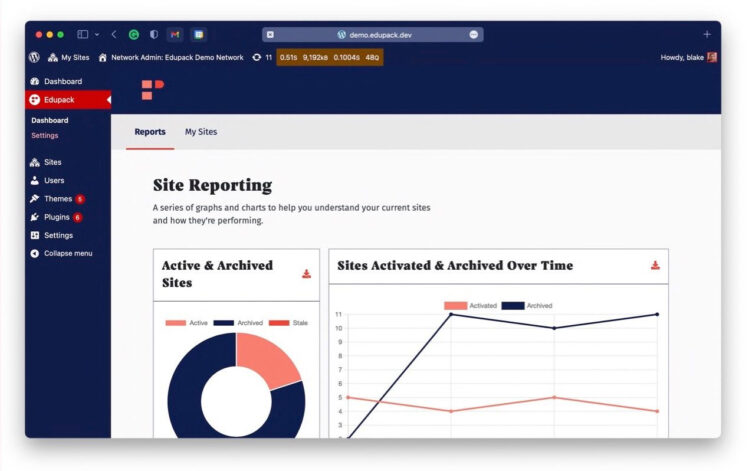Every University IT department dreams of a self-service system in which they do not have to deal with outside vendors. The dream includes a simple form that its users can fill out to generate websites from a library of templates. With Nathan Monk and Matt Lees, I cofounded a project called Edupack to realize the dream of simplified website management with a single WordPress plugin.

After eighteen months, Edupack is stopping work and moving in a new direction.
After user studies with folks from over 40 universities, including Harvard and Georgetown, I realize that Edupack cannot simplify website management with one plugin.
University users have particular website needs. We would have to build thousands of templates to satisfy the many detail-focused university users before. That design work is not affordable for many Higher Ed technology teams.
That said, Higher Ed pros should keep their dream of simplified website management alive.
I encourage most Universities to give up templated solutions and restrict “self-service” controls. Templates do not meet specific user requirements. Technology teams should focus on websites that can’t be built on WordPress.com or Squarespace. Many self-service use cases, like faculty profiles, can be satisfied with simple forms instead of access to an entire Content Management System.
Another key to simplified website management is increased resources. Website managers should argue the importance of their role. Websites are a key touchpoint for students. They not only include vital services like Student Information Systems, but websites also establish branding. Branding is an undervalued resource. Security teams rely on branding to establish official communication and brand awareness increases the marketing potential of any institution.
Of course, Harvard has one of the most recognizable brands. They also have one of the more successful web teams I’ve seen. The Harvard Web Publishing team fields tickets for new websites. Some of their websites are delivered as templated solutions. Other websites are built to the bespoke interests of their colleagues. Every new user goes through a content accessibility training course and their support staff is trained to answer most website publishing issues. That model allows Harvard to set their own requirements instead of relying on a third-party service while giving faculty and students a vital resource for promoting university-related work.
Most institutions do not have a budget to create their in-house web agency or hire third-party vendors. That fact troubles me. My only solution to that problem is for prominent universities to open-source their work and knowledge. Groups like WP Campus help share open-source web publishing knowledge. Without paying any membership fee, administrators at small schools can participate in the active WP Campus Slack channels and attend their annual conference. The onus is on university staff to contribute their knowledge to the group.
Edupack was born because of WP Campus. Matt, Nathan, and I saw reoccurring complaints about the complexity of website management on the WP Campus Slack. After many months of work, I hope lessons from Edupack inspire ever-better solutions.

Blake Bertucelli is simplifying website management with Edupack, while building the world’s first accessibility platform, equalify.app, and supporting independent journalism with Decubing Web Services.
